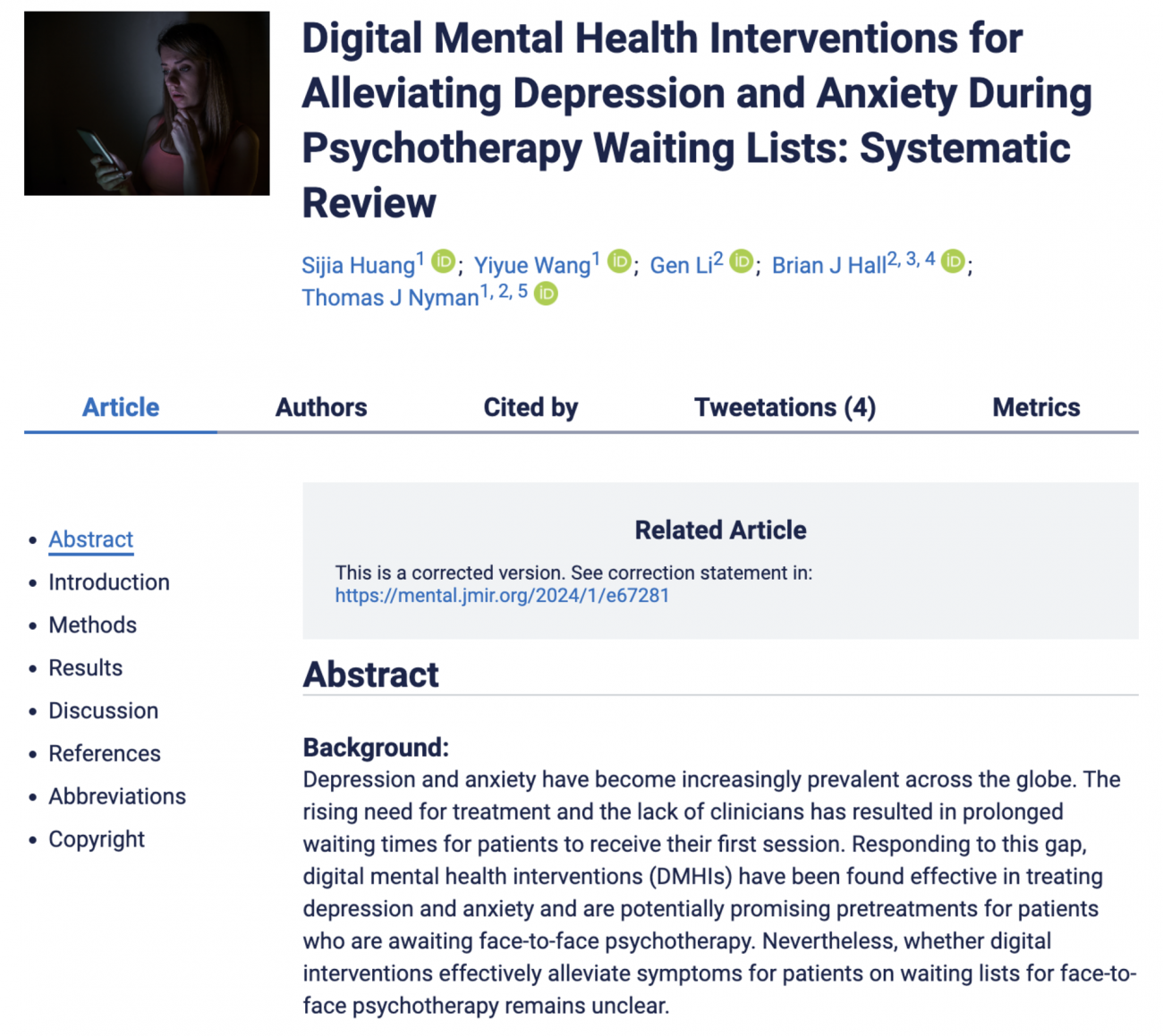
New Review Reveals Limited Effectiveness of Digital Mental Health Interventions for Individuals Awaiting Psychotherapy Published
A recent systematic review published in JMIR Mental Health highlights the challenges and opportunities presented by digital mental health interventions (DMHIs) in addressing the mental health needs of individuals awaiting face-to-face psychotherapy. The increase in mental health issues, particularly depression and anxiety, has resulted in longer waiting lists, leaving many individuals without timely support. DMHIs – online tools for delivering therapeutic interventions – are seen as a potential solution to bridge this treatment gap. Conducted by an interdisciplinary team in Psychology and Public Health at New York University Shanghai and the University of Reading, this review offers valuable insights for mental health professionals and policymakers.
This comprehensive systematic literature review screened 9,267 unique records of randomized controlled trials (RCTs) and non-RCTs to investigate the effectiveness of digital mental health interventions (DMHIs) in reducing depression and anxiety symptoms among patients waiting for face-to-face psychotherapy. The findings reveal that while DMHIs show some potential for alleviating symptoms of depression and anxiety, their benefits compared to no intervention or self-help resources are limited.
Among the five randomized controlled trials (RCTs) and three non-RCTs analyzed, most interventions resulted in modest, yet non-significant, reductions in symptoms of depression and anxiety. "Digital interventions are appealing because they are scalable, accessible, and cost-effective. Unfortunately, our findings show that most digital mental health tools did not outperform control groups where patients either simply waited without intervention or used self-help books," said lead author Sijia Huang, an NYU Shanghai alumna from Class of 2022, now a PhD student in Clinical Psychology at Rowan University.
A critical challenge identified was low user engagement. High dropout rates, especially in self-guided online interventions, suggest that patients may struggle to stay committed to digital treatments. Guided interventions – those offering personalized feedback – saw better engagement and adherence, pointing to the importance of human-centered approaches in future digital tools.
Despite the challenges, participants in the reviewed studies generally found DMHIs to be credible and useful. "These interventions have the potential to serve as a pre-treatment for patients on waiting lists, but the key will be improving engagement and adherence to increase their potential effectiveness," added Dr. Thomas J. Nyman, the study's supervising researcher (School of Psychology & Clinical Language Sciences, University of Reading).
This review emphasizes the need for ongoing innovation in digital mental health, with a focus on user experience and long-term engagement. As demand for psychotherapy grows, DMHIs are poised to complement traditional face-to-face therapy. This study represents the latest collaborative research between the Center for Global Health Equity at NYU Shanghai and Psychology researchers, underscoring the value of an interdisciplinary approach and effective communication.
Publication:
Huang, S., Wang, Y., Li, G., Hall, B. J., & Nyman, T. J. (2024). Digital mental health interventions for alleviating depression and anxiety during psychotherapy waiting lists: Systematic review. JMIR Ment Health, 11, e56650. https://doi.org/10.2196/56650

